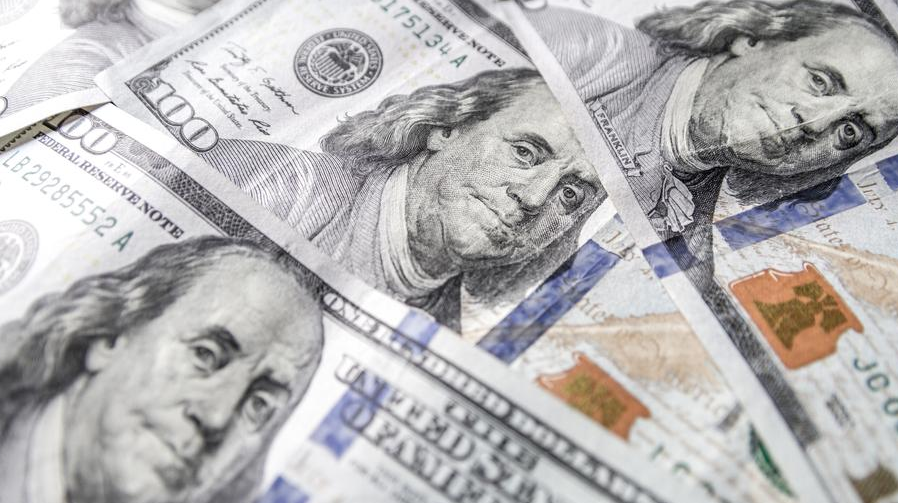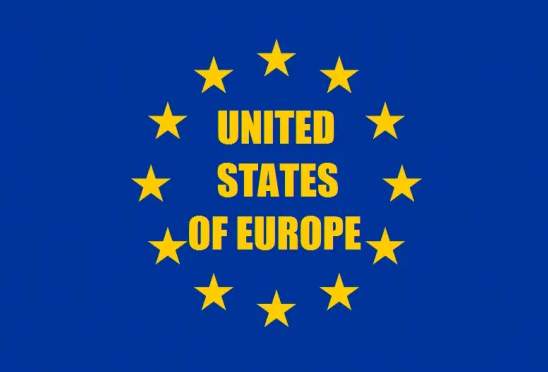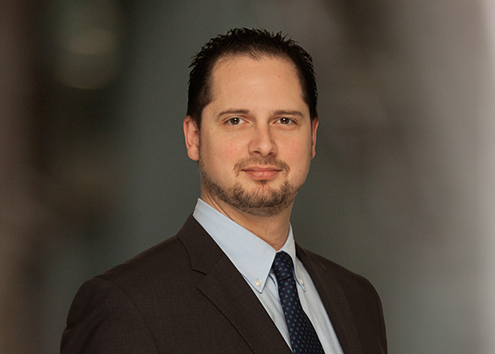Interview with Patrick Barron – Part II of II Claudio Grass (CG): This crisis has shaken a lot of industries and core functions of the global economy and international trade. How do you assess its impact on the most important part of the machine, the banking system? Do you see risks there that investors should be worrying about? Patrick Barron (PB): Banks are financial intermediaries. They take deposits and make loans. That has been going on for millennia. What we call banking today is really just an arm of government. Government grants banks special privileges to print money via fractional reserve banking and taxes banks to provide deposit insurance. The deposit insurance scam is supposed to reassure depositors that their money is secure. But the deposit
Topics:
Claudio Grass considers the following as important: 6b.) Claudio Grass, Austrian economics, Claudio Grass, Dollar collaps, Economics, Featured, Finance, Gold, Great Reset, insurance against crash, Mises Institute, Monetary, newsletter, Outside the banking system, Patrick Barron, Politics, private property rights, silver, Thoughts, Uncategorized, US elections
This could be interesting, too:
Investec writes The Swiss houses that must be demolished
Claudio Grass writes The Case Against Fordism
Nachrichten Ticker - www.finanzen.ch writes Die Performance der Kryptowährungen in KW 9: Das hat sich bei Bitcoin, Ether & Co. getan
Nachrichten Ticker - www.finanzen.ch writes Wer verbirgt sich hinter der Ethereum-Technologie?
 Interview with Patrick Barron – Part II of II
Interview with Patrick Barron – Part II of II
Claudio Grass (CG): This crisis has shaken a lot of industries and core functions of the global economy and international trade. How do you assess its impact on the most important part of the machine, the banking system? Do you see risks there that investors should be worrying about?
Patrick Barron (PB): Banks are financial intermediaries. They take deposits and make loans. That has been going on for millennia. What we call banking today is really just an arm of government. Government grants banks special privileges to print money via fractional reserve banking and taxes banks to provide deposit insurance. The deposit insurance scam is supposed to reassure depositors that their money is secure. But the deposit insurance fund in the US is a small fraction of the banks’ deposits and is not adequate to a large scale banking crisis. The banking crisis will occur when all the zombie companies who have received low interest loans start to implode. They will not be able to roll over their debt due to unprofitability. Anyone who thinks otherwise must accept the Keynesian view that fiat money is the same thing as real capital.
Governments will demand that their central banks “do whatever it takes” to paper over the crisis, but we are approaching the end game where this is possible. Even if the central bank prints enough money to cover all of the banking system’s insured deposits, the banks themselves will cease to exist. Stockholders will be wiped out, as will large depositors whose deposits exceed the insured maximum. We will witness a “bail in” where depositors will receive a fraction of their deposits and probably only after long delays and withdrawal rationing. So, a long-winded answer to the question, but, yes, investors should be very worried.
CG: Looking at the political and social situation over in the US, it would appear this is an extremely tense time, full of bitter divisions, dangerous tribalism and blind hatred of whatever and whoever is on “the other side”. With the election just around the corner, do you expect things to settle down once there’s winner, or are we more likely to see the opposite reaction, more riots and more violence?
PB: Great question! There certainly seems to be a political aspect to the rioting, where local governments that are controlled by Democrats side with the rioters. The “word on the street” is that a Biden/Harris victory will end the riots because the nation will become socialist, which is really what the rioters want, and that a Trump/Pence victory will cause rioting to increase. In my humble opinion, once the election is over the rioting will stop. Either the rioters get what they wanted or a resurgent Republican Party, pledged to law and order and with the people’s support, will intervene to keep the peace. It has happened before, and the nation welcomed it. But, this is just my opinion. We shall see.
CG: After watching all the campaign rhetoric of both candidates, as well as their first debate, one gets a strong sense that both the Republican and the Democratic Party have evolved, or perhaps devolved, beyond recognition. Civility, respect for different options and rational debate are conspicuously absent at the highest levels the political system. Do you think this is merely reflective of real divisions and hostility within American society or could it be the average citizen is actually tired of the shouting and the name calling?
PB: I have no doubt that the “average citizen” is tired of the shouting and name calling. Unfortunately, I think it will continue, not because there is real division among average citizens, but because the radical left uses these tactics to intimidate everyone. I have written several letters to the CEO’s of the major television outlets and the CEO’s of their major sponsors in which I expressed my perplexity with what is nothing more than propaganda in favor of the Black Lives Matter movement. Of course, I have heard nothing back. But I conclude that the BLM movement is somehow intimidating the major networks or at least the major networks are trying to allow the BLM movement to have its say and then move on. All the vociferous rhetoric is in favor of hard-left causes, many of which are difficult to fathom; i.e. what do these causes really want? They demand “change”, but change to what? No one really knows. So, I see the rioting stopping, but I do not see a return to civility.
CG: Many of these riots we’ve been seeing began as genuine protests against police brutality, but they soon morphed into something else, into a larger movement with a very different agenda and set of demands. People lost their lives, businesses were destroyed and immeasurable damage was inflicted on private and public property. We soon saw a significant “Exodus” from major cities, as many of those who could afford to, sold their house and left. Do you think this might be the beginning of a wider trend that could eventually lead to more decentralization in business and in governance?
PB: Absolutely! The value of living in or commuting to a major city has been diminishing for a long time and the rioting merely accelerated this trend. The Covid crisis has shown that many businesses whose owners thought they had to be located in major cities really did not need to be there. Their highly skilled workforce could produce from home or small satellite offices. Such businesses have learned how to measure productivity remotely.
Again, in my humble opinion, we have just scratched the surface of the revolution in electronics. If there is no real reason that people need to sit side by side in an office, those companies who abandon high rent, time wasting, and now dangerous downtown locations will be able to undercut their competition in both price and service. At that point the large cities will become anachronisms. With their tax base gone, these large cities will shrink. This is not a bad thing or a good thing. It is reality to which we all must adjust.
CG: Apart from these dangerous political and social tensions, do you think there’s also a crisis of faith in the US government itself and its ability to provide effective support in economic terms?
PB: Your phrase “ability to provide effective support in economic terms” reveals the true state of affairs. The unsustainable welfare state was made possible by fiat money. When fiat money collapses, the state’s ability to provide economic guarantees will be gone. Our mutual friend Alasdair Macleod has preached for some time now that the state must separate itself from this self-proclaimed economic duty. The state will be forced to return to providing little more than protection for life, liberty, and property. It always was a lie that it could do otherwise, a lie that grew out of Keynesian economics.
CG: In a similar vein, we saw a lot of people turn to precious metals, many of them first-time investors. What do you think best explains this new gold rush? Is it merely inflation expectations, a negative outlook on the USD, an anticipation of another stock market nosedive or deeper fears of possible political destabilization?
PB: It’s probably all of these, plus the fact that people are waking up to government propaganda. It’s hard to find much that the US government has done in the last fifty or sixty years that was truly beneficial to Americans. We have fought what now appear to be one useless war after another. We blew the chance to welcome Russia back into the Concert of Europe after the fall of the Soviet Union by expanding NATO into the former Warsaw Pact nations rather than phase out NATO as no longer necessary to protect Western Europe. And now, rather than help build international amity, we choose to vilify China as a threat to the world. I believe that only now are people opening their eyes to the real adverse consequences of abandoning what little remained of the gold standard in 1971.
CG: What would be your advice for those investors and ordinary savers who seek to protect their wealth from the multifaceted risks that lie ahead? How do you evaluate the role of physical precious metals in uncertain times like these?
PB: For decades we “gold bugs” were ridiculed, but that is changing. I have been asked by many what I think of holding gold and/or silver. My answer is always to repeat what one well-respected investor recommended a long time ago. Keep at least ten percent of your investable wealth in precious metals. Precious metals should be an integral part of any well balanced, diversified portfolio.
Claudio Grass, Hünenberg See, Switzerland
Tags: Austrian economics,Claudio Grass,Dollar collaps,Economics,Featured,Finance,Gold,Great Reset,insurance against crash,Mises Institute,Monetary,newsletter,Outside the banking system,Patrick Barron,Politics,private property rights,silver,Thoughts,Uncategorized,US elections






